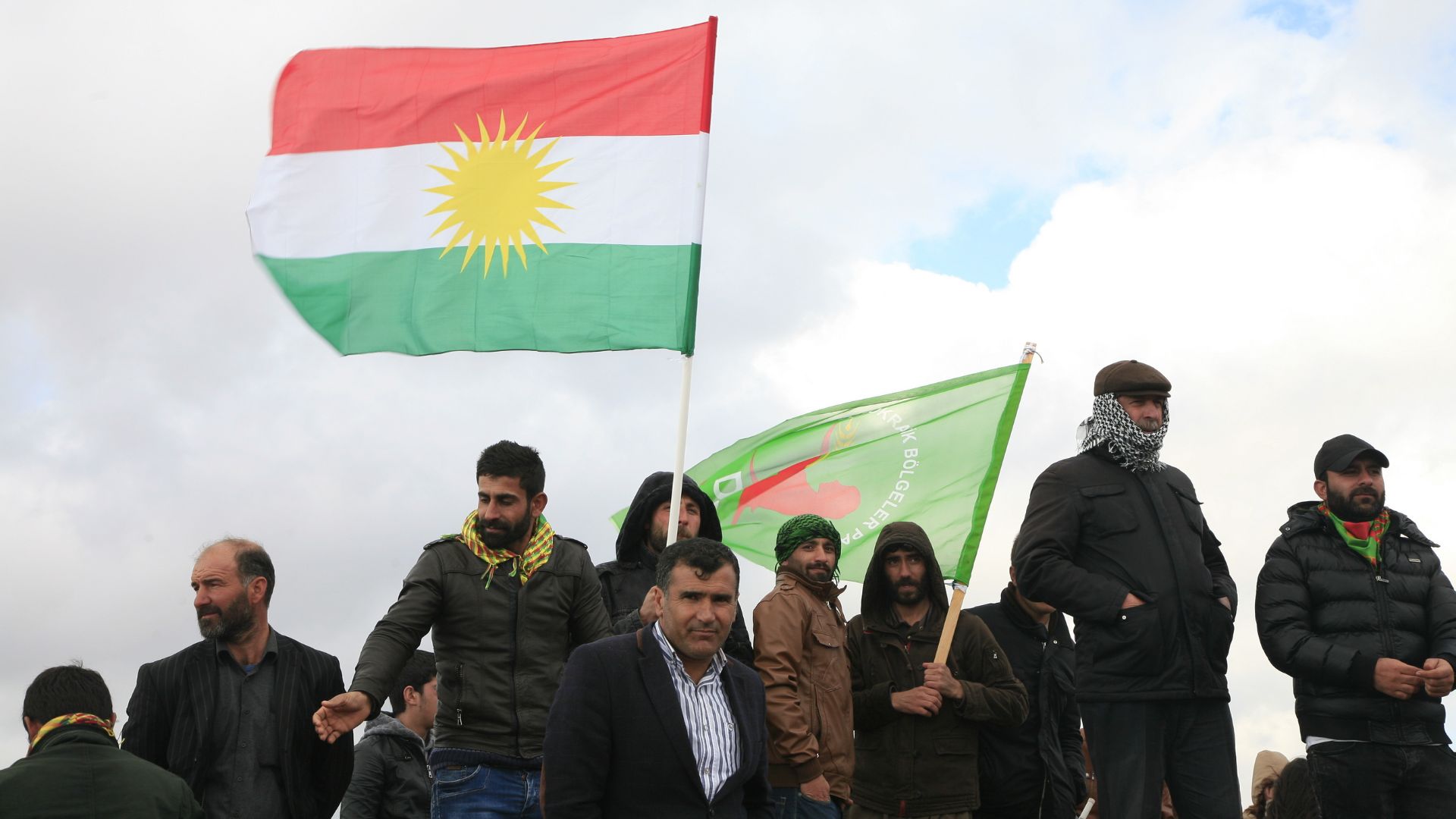International organizations and western powers often speak of peace and democracy in the Middle East with no meaningful strategy for achieving such noble goals. Peace and stability in the Middle East require the development of institutions grounded in fundamental values and principles of democracy, consideration of the history of governance in the Middle East, the multinational character of states and demands for regional self-rule.
The Kurds, the largest nation without a state, have been struggling for self-rule and decentralized governance for decades in the Middle East. The Kurds and the countries that occupy Kurdistan are ideal case studies to examine when seeking ways to establish lasting peace and sustainable democracy in the Middle East.
The past as a guide to the future
An examination of the history of the Middle East reveals that even during imperial times, power was shared despite strong central authority. The Ottomans under the vilayet system never practiced complete central authority over Kurdish principalities and other Vilayets in the empire the way the Turkish Republic does today. The many revolts by Kurdish princes and governors like the Shaykh Ubayd Allah of Nihri and the Badir Khan Beg of Botan demonstrate the ability of the Kurds in Ottoman Kurdistan and Persia to govern autonomously. The principalities of Ardalan, Guran, Mukri, Baban, Buhtan and so forth are notable examples of Kurdish autonomy and self-administration before the establishment of the current boundaries of the Middle East under the Sykes-Picot Agreement.
Despite being labeled as separatists and terrorists by some, the Kurds have been one of, if not the only, actors furthering democratic development and resistance in Turkey, Iran, Iraq and Syria. They have served as crucial resisters of oppressors and autocrats in the region for over a century. The blood they have given in the struggle for their national democratic rights has been a significant force in preventing the further spread and entrenchment of tyranny in the Middle East. Building lasting democracy in any of these countries starts with settling the Kurdish question.
Furthermore, The Kurds have historical connections and ongoing relationships with the states that occupy their land. Despite the antagonistic nature of this relationship, they are ideal candidates for mediating a measure of peace and stability because their demands have always been democratic, making them natural allies of every democracy seeking Persian, Turk and Arab.
The next steps
Contrary to what many may claim, a peaceful resolution of the Kurdish question is very much possible and it begins with the inevitable process of federalizing governance in Turkey, Iran, Syria and Iraq.
Today we witness a federal Iraq with a Kurdish regional government (KRG). While The KRG is not without its problems, most scholars acknowledge that it is slowly becoming a serious model of a working democracy in the region with a growing civil society that is making significant social, economic and political strides. A similar phenomenon is likely to take place in Rojava (the Kurdish region of Syria) with the recent establishment of several autonomous cantons. The Kurds of Turkey have made similar demands with Ocalan’s theory of democratic federalism, and the continued efforts by Iran’s Kurds along with its other nationalities, for a federal democratic Iran, prove federalism and decentralization to be the most viable way forward for Middle East peace and stability.
In international politics, realists often emphasize the balance of power and how it is usually responsible for peace. If one applies this logic to the Kurds and the states they are resisting then it is quite clear that supporting the decentralization of the governments of Turkey, Syria and Iran into federal systems would serve to create some measure of peace and stability by creating a balance of power between the Kurdish regional governments and the central governments. Such a balance and decentralization of power would make it very difficult but not impossible for strong dictatorial regimes to re-emerge and entrench themselves in these societies, as we have witnessed in the past and are witnessing today in Iran and Syria. Such an arrangement would undoubtedly force all powers to the negotiating table when disagreements arise since no power would be strong enough to defeat the other. The best course of action would thus be for all parties to sit down and work out their problems peacefully.
In a region as chaotic as the Middle East, a strong and autocratic central government will not work. History shows us that the monopoly of power by one nation or group over others will not lead to stability and peace in the Middle East, but rather harness the foundation for its end. For instance, Saddam Hussein and the Sunni monopoly of power in Iraq demonstrate what can happen when one group monopolizes power and deprives other groups. A lesson Iran, Turkey, Syria and even the Shia-dominated government of Iraq fails to comprehend at times. The only way to foster tolerance, democracy and a truly representative and inclusive system in such a multicultural and multinational region is by the promotion and advancement of a decentralized federal system. Federalism would localize governance making governance more effective and representative. This would create a sense of common interest between the various groups in the region given that each group is granted a share in power.
The path to a more peaceful and democratic Middle East is thus clear, and it starts with finding a just and peaceful resolution to the Kurdish question. For peace and democracy to make major headway in the Middle East it is essential that the international community and major international powers back the resolution of the Kurdish question and treat it as a priority in their respective Middle East policy. The freedom of the Kurdish nation would result in the furthering of peace and democracy in the Middle East and the birth of multinational federalism in a region where power is unchecked and constantly contested by various groups and states.
The views expressed in this article are the author’s own and do not necessarily reflect Fair Observer’s editorial policy.
Support Fair Observer
We rely on your support for our independence, diversity and quality.
For more than 10 years, Fair Observer has been free, fair and independent. No billionaire owns us, no advertisers control us. We are a reader-supported nonprofit. Unlike many other publications, we keep our content free for readers regardless of where they live or whether they can afford to pay. We have no paywalls and no ads.
In the post-truth era of fake news, echo chambers and filter bubbles, we publish a plurality of perspectives from around the world. Anyone can publish with us, but everyone goes through a rigorous editorial process. So, you get fact-checked, well-reasoned content instead of noise.
We publish 3,000+ voices from 90+ countries. We also conduct education and training programs
on subjects ranging from digital media and journalism to writing and critical thinking. This
doesn’t come cheap. Servers, editors, trainers and web developers cost
money.
Please consider supporting us on a regular basis as a recurring donor or a
sustaining member.
Will you support FO’s journalism?
We rely on your support for our independence, diversity and quality.








Commenting Guidelines
Please read our commenting guidelines before commenting.
1. Be Respectful: Please be polite to the author. Avoid hostility. The whole point of Fair Observer is openness to different perspectives from perspectives from around the world.
2. Comment Thoughtfully: Please be relevant and constructive. We do not allow personal attacks, disinformation or trolling. We will remove hate speech or incitement.
3. Contribute Usefully: Add something of value — a point of view, an argument, a personal experience or a relevant link if you are citing statistics and key facts.
Please agree to the guidelines before proceeding.